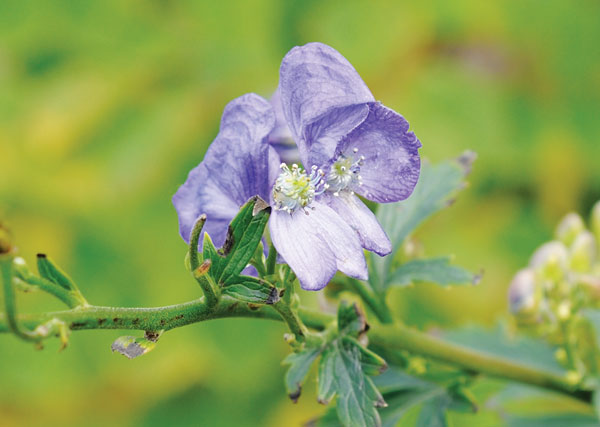 [/media-credit]
[/media-credit]
Asphalt Green Battery Park City, the community center at 212 North End Ave., was supposed to open in November, but will not open until Feb. 1 because of permitting delays. The Battery Park City Authority owns the facility and has entered into a five-year contract with Asphalt Green to run it. B.P.C.A. president Gayle Horwitz said that the necessary inspections involving the Department of Buildings and the Fire Department had not yet been completed, necessitating the delay.
Memberships in the facility are still available at discounted charter rates of $95 a person per month for individuals and $165 per month for a family of four (compared with $105 a month and $175 a month at full price). The initiation fee has been discounted from $199 to $49 during the pre-opening period. The Asphalt Green sales office is at 211 North End Ave. and is open daily.
Many programs at Asphalt Green will incur additional fees. Registration for specific programs begins on Nov. 30 for members and on Dec. 5 for non-members.
Carol Tweedy, the executive director of Asphalt Green, has said that community center will have an exciting range of sports and cultural programs for everyone from infants to seniors. She also said that Asphalt Green does outreach work in schools with low-income student bodies and offers scholarships for some of its programs to low-income young people. “This is supposed to be a true community center,” Tweedy said, emphasizing the word “community.”
However at a meeting of Community Board 1’s Battery Park City Committee on Nov. 1, Jeff Galloway, co-chair of the committee, expressed concerns about affordability. “We all agree that underserved communities need to be served and scholarships are a great way of doing it,” he said, ”but in addition to that, not everybody in this community is in the 1 percent, to use the nomenclature of our neighbors down the street, and we want the community as a whole to be able to use this facility. Speaking for myself and maybe for some others here as well, the scholarship philosophy should recognize that this should be accessible to the middle middle class – that you shouldn’t have to be truly poor or truly wealthy or upper middle class to enjoy these facilities. It may not look like it to the naked eye, but if you look carefully you will in fact see that many people in our community are not in the 1 percent.”
Although Tweedy had mentioned that the community center would have many enticing programs and facilities for seniors including a warm pool with a floor that could be raised and lowered to accommodate those with mobility issues, Ruth Ohman, a Battery Park City Committee member who arranges programs for the neighborhood’s seniors said, “Almost all the seniors that I know, who go to senior centers and places like that, are not going to be able to afford your place and they’re not going to go.”
“If you have seniors who go to senior centers, we have relationships with senior centers,” Asphalt Green’s director of programming, Paul Weiss, replied, indicating that even if seniors couldn’t afford to join Asphalt Green Battery Park City, some programming would be available to them elsewhere.
Manny Norona departs:
Pharmacist Manny Norona, who worked at the Battery Park Pharmacy for more than 25 years, left abruptly in early November. The pharmacy at 327 South End Avenue was one of the first businesses in Battery Park City, and Norona was there almost from the beginning. Elizabeth Kwack, who said she was the owner of the pharmacy, offered no explanation for Norona’s departure. Norona was beloved by many Battery Park City residents. “I was very upset to learn about this,” said one neighborhood resident. “Manny knew who I was and I trusted him,” said another. “If I had a new prescription, he would tell me if there might be side effects and whatever else I needed to know. I will miss him.”
Holidays at the Winter Garden: Part of 2 World Financial Center is closed for construction, but the Winter Garden is still open and as of Nov. 29, ablaze in 100,000 small, white lights hanging among the palm trees and from the columns. The first event of the holiday season was New York Theatre Ballet’s new production of Keith Michael’s “The Nutcracker.” On Dec. 4 at 2 p.m., the Irish band Danu (named for a Celtic goddess) brings traditional Irish Christmas music to the Winter Garden. Then from Dec. 9 to 11, Santa, his reindeer and elves show up with storytelling and photo ops with Santa. The $20 fee for the pictures benefits the Brooke Jackman Foundation, a literacy program for at-risk New York City kids.
 [/media-credit]
[/media-credit]
A purple flower called monkshood (Aconitum ‘Ardensii’) now to be seen along the South Cove walkway is a late bloomer, according to Eileen Calvanese, head of horticulture for the Battery Park City Parks Conservancy, “but may be holding onto its flowers for a longer period because of mild weather.”
Monkshood, also commonly known as “wolfsbane” and “devil’s helmet,” is a member of the buttercup family. There are over 250 species in the aconite genus, all of them poisonous. But for thousands of years, aconite has also been used for medicinal purposes, both in Asia and the West. In folklore and mythology, wolfsbane could be used to ward off werewolves or to transform people into a werewolf if worn, smelled or eaten. Drawing on these accounts, wolfsbane turns up in some of the Harry Potter books.
South Cove’s Aconitum ‘Ardensii’ is a hybrid. Its name honors German nurseryman Georg Arends (1863-1952) who first bred this cultivar almost 70 years ago at his nursery near Cologne.
To comment on Battery Park City Beat or to suggest article ideas, email TereseLoeb@mac.com.





























